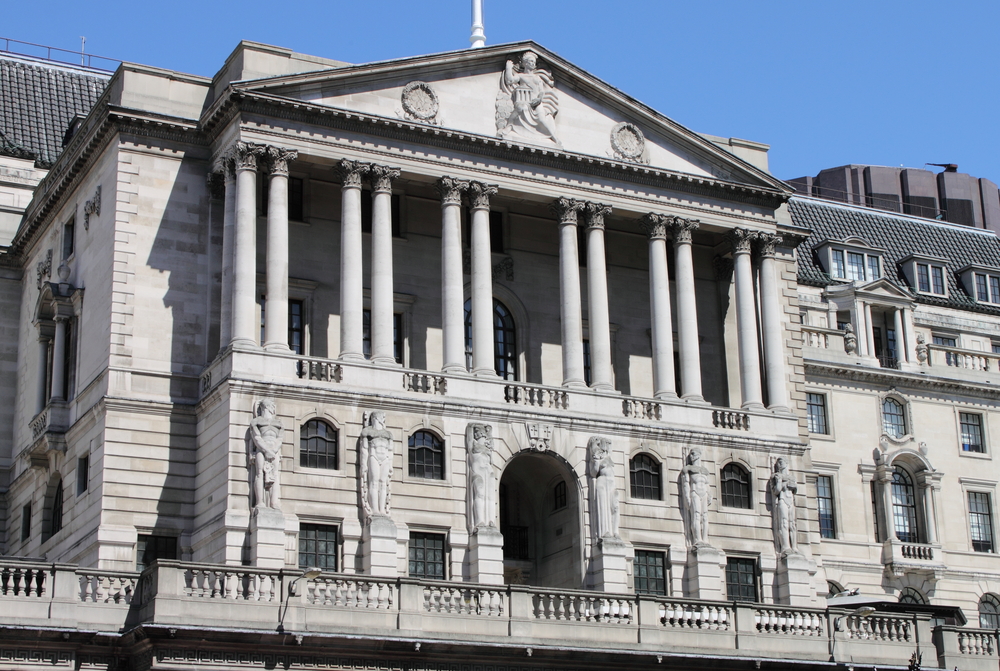News
Record wage growth and sticky inflation could push Bank of England base rate beyond 5.5 per cent

Guest Author:
Emma LunnWage growth and sticky core inflation means the Bank of England (BoE) base rate is likely to rise to 5.5 per cent next month.
The current base rate of 5.25 per cent is the highest level seen since 2008 and any further hike will pile even more pressure onto borrowers who are already facing huge price rises amid the cost of living crisis.
The base rate has been rising in a bid to curb runaway inflation. But the rate of inflation has now started to slow – with the annual consumer prices index (CPI) inflation standing at 6.8 per cent in July, down from 7.9 per cent in the year to June.
John Glen, chief secretary to the Treasury, said the figure means the UK is now “on course to get to the two per cent target” by 2025.
But despite the fall in CPI, the figure is still historically high and needs to be seen in the context of stubborn core inflation, record wage inflation and surprisingly high growth figures.
Today’s drop in CPI means that for the first time since autumn 2021, prices are increasing less rapidly than wages. Total pay, including bonuses, rose by 8.2 per cent a year in the three months to June, according to the Office for National Statistics (ONS).

Introducing the Green Living Reward
Your clients can now get up to £2,000 cashback for making energy-efficient home
Sponsored by Halifax Intermediaries
Ben Thompson, deputy CEO at Mortgage Advice Bureau, said: “While July’s inflation fall is a firm sign that the headline rate is moving in the right direction, salary rises have thrown up yet another conundrum for the BoE.
“Wages have grown at a record level to 7.8 per cent and are now higher than current inflation at 6.8 per cent. Inflation dropping back opens the door for the BoE to press pause on rate rises, but record wage growth keeps potential hikes firmly on the table.”
The wage jump was more than expected in June, and was boosted by a one-off payment to NHS workers. Regular pay, which excludes bonus payments, rose by 7.8 per cent in the quarter, the highest regular annual growth rate since comparable records began in 2001.
The number of vacancies in the UK jobs market fell 66,000 between May and July. However, there are still more than one million vacancies.
Improvements but more base rate rises on the way
Experts said the outlook was not improving rapidly enough to prevent further interest rate rise next month. The BoE has previously said interest rates won’t begin to fall until there is solid evidence that price rises are slowing and pay is stable.
Ruth Gregory, deputy chief UK economist at Capital Economics and Samuel Tombs, an economist with Pantheon Macroeconomics, are among several pundits predicting that the Monetary Policy Committee (MPC) will hike rates one more time to 5.5 per cent.
Tombs said: “The momentum in wage growth still is too strong for the committee to take a break just yet.”
Adam Oldfield, chief revenue officer at Phoebus Software, said: “Although it is in line with many predictions, it is good to see inflation come down below seven per cent. The hope was that it might get down to five per cent by the end of the year, but there may be a couple of factors that will have had an effect when we see next month’s figure.
“Prices at the petrol pumps have been going up this month which, along with rising wages, has the potential to push inflation up again next month. With this in mind the BoE is highly unlikely to veer away from its current path, and another base rate rise is likely to be on the horizon.”
Meanwhile, Sanjay Raja UK chief economist Deutsche Bank, predicts that base rate will end up at 5.75 per cent by the end of the year.
He said: “What does [wage growth] mean for the MPC? Bottom line: for the MPC, despite growth signs of cooling in the labour market, the strength of wage growth – and in particular, private sector pay growth – will be worrying. Bear in mind, the MPC expected private sector regular pay to slip to 6.9 per cent year-on-year in Q3 2023 – this looks unlikely now.
“This should leave the prospect of a 50bps hike on the table for September with hawks like [MPC rate setters] [Jonathan] Mann and [Catherine] Haskel potentially calling for bigger hikes in four weeks’ time. Ultimately, the wage data was one big reason why we thought, and continue to think that the MPC has some way to go with our terminal rate projection still at 5.75 per cent. Put differently, a pause – in our view – remains at least a few months away.”
